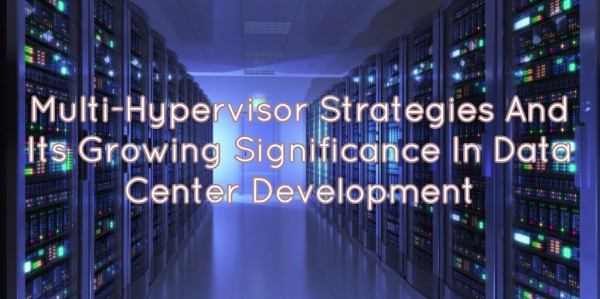It has become clear that multi-hypervisor environments will continue to grow in the coming years. Not just as a means to test environments, or for that matter for uses in specialized operations, but for many other reasons including technology and automation implications.
One fact that we know is that the growth of Multi-Hypervisor strategies is being propelled by the expertise of IT teams and their technological management abilities. Their elevated skills have been the driving force behind the abilities to implement multiple hypervisor management platform, operating through the same system, and through the use of the same language.
Recent Data Center News shows that other big actors have also joined in the data center development arena. Microsoft has acquired land, over 202 acres from Port Quincy in Washington for the development of a data center. Microsoft is not the only IT company operating in the Port Quincy area, other IT companies such as Dell, Yahoo, Intuit Sabey and Vantage also are engaged in the operation of Data centers in and around the region of Port Quincy which has become attractive region for major IT companies.

New Trends in Data Center Development
More Data Center News has highlighted the fact that over 48 percent of firms would prefer to deal with one vendor for the purposes of consistency. The same report also revealed that about 37 percent of companies are pursuing and are interested in multi-hypervisor strategy. The reason for this, stems from their desire to avoid a lock-in situation so as to be able to maintain some of their important choices relating to pricing and ability to pursue other strategies for future development.
Multi-Hypervisor strategies have been described by experts knowledgeable in this field as a smart approach in combining management approach with multi-tiering techniques.
Emphasis moving away from the Traditional 3-tier models
There is also the point that the old 3-tier model often involving the use of different server, storage and networking related storage, is being phased out in favor of easy solutions which can operate on standard software. This new approach has additional benefits of inherent flexibility over the traditional solutions which are often aimed at addressing specific vendor solutions.
More advantages of Multi Hypervisor Strategies
In addition to the mentioned points above, Multi-Hypervisor strategies offer the following advantages:
- Helps in the maturation of virtualization stacks on offer
- Helps stimulate pursuit of pervasive virtualization
- Offers faster process to assemble hardware through standardized methods
- Offer companies more abilities in choosing better scaling and deployment models
- Avoids upfront over provisioning
Other experts in this field also believe that the recent trend in favor of Multi-Hypervisor strategies which have continued to gain wide scale popularity results from its adaptability to address critical workloads and ability for remote deployment. Multi-Hypervisor strategies is also growing in popularity in infrastructure as well as a platform for development and testing purposes. It is also believed that Multi-hypervisor strategies offer more cost effective management abilities than the traditional approaches. It has great advantages for automation workflows, and provides the much needed control and agility to businesses subscribing to its strategies.
Katrina is a product specialist for RackSolutions, the market leader for designing and manufacturing custom racking products for the IT industry! You can read more about our company here.

